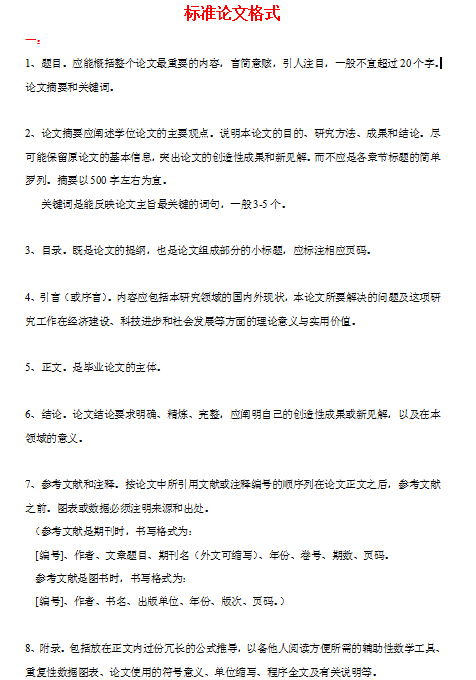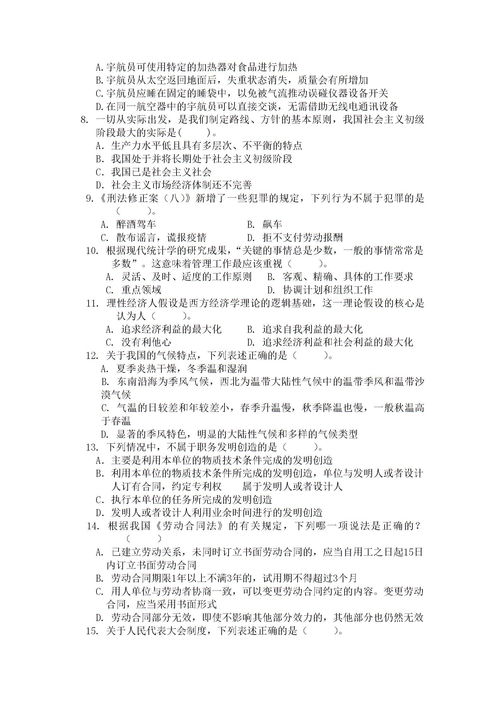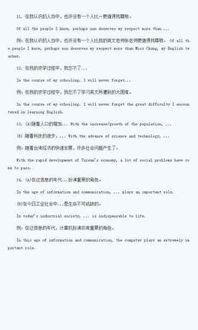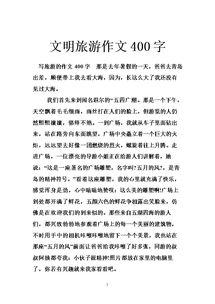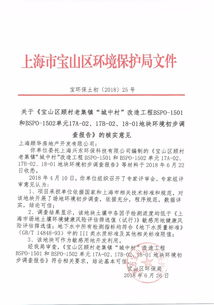1.“全球化”英语作文,
Globalization and Internet (全球化/Internet) The drawing vividly unfolds …(Describe the picture描述图画) This phenomenon which this picture points out is one of numerous international phenomena to have become common and already attracted broad attention in the world in recent years. Globalization/Internet, in brief, makes the whole world a small village. Globalization/Internet offers extensive opportunities for every country in the world to develop their economy, improve their regime, enrich their culture, update their technology and so forth, but globalization/Internet is a two-edged sword: it can bring both benefit and harm. (Present state/situation现象描述+ /Meaning含义) 这幅图画指出的这个现象是近几年在世界上众多已经变得普遍并且已经引起了广泛关注的国际/世界现象之一。
全球化/Internet,简言之,就是使整个世界变成一个小村子。全球化/Internet给予了这个世界上的每一个国家广泛的机会去发展它们的经济、改善它们的政体、丰富它们的文化、更新它们的技术等等,但全球化/Internet是一把两刃剑:既有利的一面,也有害的一面。
We must first understand the nature of the problem. On the one hand, globalization/Internet offers extensive opportunities for every country in the world. On the other hand, One of the most controversial aspects of globalization/Internet is the global spread and dominance of American culture.我们必须先要理解这个问题的本质。一方面,全球化/Internet为这个世界上的每一个国家提供了广阔的机会。
另一方面,全球化/Internet最具有争议的其中一个方面是认为全球化就是美国文化的全球扩张和一统天下。I have some suggestions about dealing with this problem. First and foremost, Globalization/Internet can bring benefit. In the past twenty years, in the process of globalization and explosive development of the Internet, China has brought about rapid economic growth, sustained social progress and continuous betterment of people's living standard, so we should accept. Secondly, it can also bring harm. China has been experiencing the collapse of own traditional virtue in the process.In summary, I am deeply convinced that she, a nation which has civilization for 5,000 years, never loses any good things, physical, intellectual, or moral, till she finds a better substitute, and then the loss is a gain. (Suggestion+conclusion建议+结束语) 关于处理这个问题,我有一些建议。
首要地,全球化/Internet能带来利益。在过去二十年,在全球化和Internet爆炸性的发展的过程中,中国已经产生了快速的经济增长、持续的社会进步和人们生活水平的不断改善,因此我们是应该接受的。
其次,它也能带来伤害,在全球化和Internet爆炸性的发展的过程中,中国一直在经历着自己传统美德的瓦解。总之,我深信她,一个拥有5000年文明的民族,决不会丢掉任何好的东西,物质的、精神的或道德的,直到她找到一个更好的替代,那么到那时侯这种丢失就是一种获得。
2.雅思大作文:全球国际化的帮助采取怎样的形式比较
What kind of relief from rich countries should be given priority in terms of supporting developing countries? Some people think the best answer of this issue is simply money. Others, however, hold an opposed view that other practical aids, instead of finance, are a sound decision. Personally, I am in favor of the latter view, and I will explore possible reasons as below.Firstly, the common root problem of developing countries is the collapsed administration and economy systems, and their recovery seriously depends on the transfusing of external capital. Firstly, financial aids allow a poor country to build up an effective government by paying salaries of governmental personnel without delay. With stable income, most officials would be satisfied and motivated to be fully in charge of social technical, executive and supervisory positions like courts of law, police stations, water and power supply departments and so forth, thus lifting the community out of street violence, crimes and living chaos. Besides, financial injection helps to restore the banking system, which means the availability of commercial loan with low interest for a large amount of companies eagerly needing money for material purchase, hiring workers and products manufacturing. Accordingly, what the capital input brings include vibrant industry and business, ever-increasing job opportunities and tax revenue for public welfare--in short, a booming social development on a right track.Another reason for supporting financial aids is that money is always a favored kind of donation, because it gives recipients in poor countries a high flexibility to buy what they are really lack of. In fact, practical needs are always variable and unpredictable in different countries, people and times ,so that it is very likely that the common physical goods endowed from rich countries may not precisely suit demands of local regions. For example, as for Vietnam which suffers from wars for decades, surprisingly, any type of food aid from foreign countries is undesirable , for the reason that the yield of grain produced in this poor country can not only fully feed its people, but also be more than enough for food export. In contrast, if Vietnam were offered money directly, it will buy whatever it needs most from international markets, probably from public transportation to vaccines to school facilities. Therefore, straight money support is indispensable, its universal effectiveness is always superior over any other goods-based donation.However, financial aids do not come without risks, and one of them is about their misuse. Obviously, in too many developing countries lacking democracy, public supervision, or accountability and transparency in government operation, there is a high possibility that the money might be appropriated for personal sake or even flow into the pocket of bureaucrats--corruption in short, expectedly. In addition, the most worrying aspect is that in poor countries in civil war, money will be misspent by warlords buying new weapons and bombs, instead of foodstuffs or medicines. Consequently, In cases above, the final application of financial support would depart from its initial charitable purpose, and it will make social poverty worse, not better.Moreover, when it comes to healthy and sustainable growth, there are more to require for a poor country than just buying stuffs by money. Specifically, the acquirement of core factors that have lasting and fundamental impacts on the society, such as qualified teachers, doctors, lawyers and scientists, cannot be achieved by buying, but rather by systematic training and teaching. In other words, non-financial aids from developed countries are also necessary. For example, professional teams containing experts in all kinds of fields from science to medication, from law to social work, should be sent in poor countries for the purpose of educating their future talents. What is more, observers from rich countries should also join the running of local government, which ensures that all kinds of benefaction can be allocated to the public fairly.In conclusion, financial aids are always needed as the first step for economy revival. To a larger extent, however, money is very limited and even risky, and other practical helps, especially the ones associated with human resources, should be introduced into poor countries.。
3.全球化 英语作文
Economic opportunities of globalization on developing countries: First, economic globalization for developing countries to attract more foreign investment conditions and opportunities. To attract foreign investment scale will no doubt help to solve the problem of shortage of funds in developing countries. Second, economic globalization for developing countries outside of the capital voted to create a favorable external environment and conditions, so that foreign direct investment scale is continually expanding and growing fast. Third, economic globalization brought about a worldwide economic and technological development zones and bonded areas and free trade zones and other forms of development of free economic zones. Fourth, the economic globalization so that the worldwide industrial restructuring was further deepened, the pace of increase. Developing countries can take advantage of this opportunity to follow based on reality and focus on the future of the organic unity and take the initiative to coordinate the worldwide industrial restructuring and upgrading of domestic industries relationship. Fifth, economic globalization has promoted the development of transnational corporations in developing countries so that in the world market gradually. However, the development trend, as a result of economic globalization for developing countries in the broader field of active participation in international competition opportunities for transnational corporations in developing countries more actively active in the world economic stage of the era just around the corner. Sixth, the economic globalization has driven the rapid development of international trade. Although developed countries are the biggest beneficiaries of international trade, but developing countries, especially developing countries in Asia also benefited from international trade, its trade volume of world trade accounted for about 20% of the total. Economic challenges of globalization on developing countries The challenges posed by economic globalization is tough, developing countries and developed countries brought about by economic globalization to share some interests, but under pressure from economic globalization brought about by the negative effects of even a serious blow to their economies. Economic globalization on developing countries, the challenges are: First, developing countries in the current process of economic globalization in a disadvantageous position. With the global trade and the global production system of rapid development, as well as multinational corporations and capital expansion of the national economy of developing countries are faced with increasing pressure and the impact of dependence on the developed countries is also increasing . Developed countries to control the international economic system, holds the hands of capital, technology and other advantages, in economic globalization to the majority of developing countries far behind. Secondly, under the economic globalization of financial globalization in developing countries in promoting economic growth, brought about the financial risks can not be ignored and economic shocks. At present, 24 hours of electronic transactions in the global financial market has taken shape, in order to provide greater facilitation of market transactions, but also for the financial sector has provided many opportunities for speculators. Second, because under the conditions of economic globalization, market forces around the world to strengthen, as well as developed countries, the expansion of large multinational companies, there may be some impact on domestic industries of developing countries, threatening the safety of its domestic market to enable developing countries in economic affairs the relative decline in power.。
4.求一篇关于全球化的英语作文,300字
Economic opportunities of globalization on developing countries: First, economic globalization for developing countries to attract more foreign investment conditions and opportunities. To attract foreign investment scale will no doubt help to solve the problem of shortage of funds in developing countries. Second, economic globalization for developing countries outside of the capital voted to create a favorable external environment and conditions, so that foreign direct investment scale is continually expanding and growing fast. Third, economic globalization brought about a worldwide economic and technological development zones and bonded areas and free trade zones and other forms of development of free economic zones. Fourth, the economic globalization so that the worldwide industrial restructuring was further deepened, the pace of increase. Developing countries can take advantage of this opportunity to follow based on reality and focus on the future of the organic unity and take the initiative to coordinate the worldwide industrial restructuring and upgrading of domestic industries relationship. Fifth, economic globalization has promoted the development of transnational corporations in developing countries so that in the world market gradually. However, the development trend, as a result of economic globalization for developing countries in the broader field of active participation in international competition opportunities for transnational corporations in developing countries more actively active in the world economic stage of the era just around the corner. Sixth, the economic globalization has driven the rapid development of international trade. Although developed countries are the biggest beneficiaries of international trade, but developing countries, especially developing countries in Asia also benefited from international trade, its trade volume of world trade accounted for about 20% of the total. Economic challenges of globalization on developing countries The challenges posed by economic globalization is tough, developing countries and developed countries brought about by economic globalization to share some interests, but under pressure from economic globalization brought about by the negative effects of even a serious blow to their economies. Economic globalization on developing countries, the challenges are: First, developing countries in the current process of economic globalization in a disadvantageous position. With the global trade and the global production system of rapid development, as well as multinational corporations and capital expansion of the national economy of developing countries are faced with increasing pressure and the impact of dependence on the developed countries is also increasing . Developed countries to control the international economic system, holds the hands of capital, technology and other advantages, in economic globalization to the majority of developing countries far behind. Secondly, under the economic globalization of financial globalization in developing countries in promoting economic growth, brought about the financial risks can not be ignored and economic shocks. At present, 24 hours of electronic transactions in the global financial market has taken shape, in order to provide greater facilitation of market transactions, but also for the financial sector has provided many opportunities for speculators. Second, because under the conditions of economic globalization, market forces around the world to strengthen, as well as developed countries, the expansion of large multinational companies, there may be some impact on domestic industries of developing countries, threatening the safety of its domestic market to enable developing countries in economic affairs the relative decline in power.。
5.求一篇关于全球化的英语文章,120字左右
120 words? I can't find that either. This is only for your reference. You can't take it as yours. Got it?Globalization for Whom?Time to change the rules -- and focus on poor workersby Dani Rodrik Globalization has brought little but good news to those with the products, skills, and resources to market worldwide. But does it also work for the world's poor? That is the central question around which the debate over globalization—in essence, free trade and free flows of capital—revolves. Antiglobalization protesters may have had only limited success in blocking world trade negotiations or disrupting the meetings of the International Monetary Fund (IMF), but they have irrevocably altered the terms of the debate. Poverty is now the defining issue for both sides. The captains of the world economy have conceded that progress in international trade and finance has to be measured against the yardsticks of poverty alleviation and sustainable development. For most of the world's developing countries, the 1990s were a decade of frustration and disappointment. The economies of sub-Saharan Africa, with few exceptions, stubbornly refused to respond to the medicine meted out by the World Bank and the IMF. Latin American countries were buffeted by a never-ending series of boom-and-bust cycles in capital markets and experienced growth rates significantly below their historical averages. Most of the former socialist economies ended the decade at lower levels of per-capita income than they started it—and even in the rare successes, such as Poland, poverty rates remained higher than under communism. East Asian economies such as South Korea, Thailand, and Malaysia, which had been hailed previously as "miracles," were dealt a humiliating blow in the financial crisis of 1997. That this was also the decade in which globalization came into full swing is more than a minor inconvenience for its advocates. If globalization is such a boon for poor countries, why so many setbacks?Globalizers deploy two counter-arguments against such complaints. One is that global poverty has actually decreased. The reason is simple: while most countries have seen lower income growth, the world's two largest countries, China and India, have had the opposite experience. (Economic growth tends to be highly correlated with poverty reduction.) China's growth since the late 1970s—averaging almost 8 percent per annum per capita—has been nothing short of spectacular. India's performance has not been as extraordinary, but the country's growth rate has more than doubled since the early 1980s—from 1.5 percent per capita to 3.7 percent. These two countries house more than half of the world's poor, and their experience is perhaps enough to dispel the collective doom elsewhere. The second counter-argument is that it is precisely those countries that have experienced the greatest integration with the world economy that have managed to grow fastest and reduce poverty the most. A typical exercise in this vein consists of dividing developing countries into two groups on the basis of the increase in their trade—"globalizers" versus "non-globalizers"—and to show that the first group did much better than the second. Here too, China, India, and a few other high performers like Vietnam and Uganda are the key exhibits for the pro-globalization argument. The intended message from such studies is that countries that have the best shot at lifting themselves out of poverty are those that open themselves up to the world economy.How we read globalization's record in alleviating poverty hinges critically, therefore, on what we make of the experience of a small number of countries that have done well in the last decade or two—China in particular. In 1960, the average Chinese expected to live only 36 years. By 1999, life expectancy had risen to 70 years, not far below the level of the United States. Literacy has risen from less than 50 percent to more than 80 percent. Even though economic development has been uneven, with the coastal regions doing much better than the interior, there has been a striking reduction in poverty rates almost everywhere.What does this impressive experience tell us about what globalization can do for poor countries? There is little doubt that exports and foreign investment have played an important role in China's development. By selling its products on world markets, China has been able to purchase the capital equipment and inputs needed for its modernization. And the surge in foreign investment has brought much-needed managerial and technical expertise. The regions of China that 。
6.雅思作文素材:全球化及影响如何拓展话题
4、对其他的文化和人民更了解 A better understanding of other cultures and other people 5、促进文化的融合,消除文化障碍 Promote cultural integration, remove cultural barriers 6、接受不同的文化和价值观 Embrace different cultures and values 7、减少工作机会,增加竞争 Reduce opportunities of jobs, increase competition 8、促进文化多样性 Promote cultural diversity 9、不在尊重传统文化 Lose respect to traditional values 10、文化产品 Cultural goods/commodities/products 11、降低文化多样性 Degrade cultural diversity 12、贫富差距增大 Widening the gap between the richest and the poorest of the world 13、损害社会团结 erosion of social solidarity 14、传统观念/价值 Traditional/older/traditionally-held values/perceptions/cultures/beliefs 15、文化冲击 Cultural shock 16、融入当地新的社会 Merge into the new local communities 17、融入新的文化 Integrate into the new culture 18、自然和文化资源的保护 Preservation/conservation of the natural and cultural resources 19、当地传统风俗 Local/host traditional customs 20、破坏传统文化的神圣 Erode the sacred of traditional culture 21、扩大出口和吸引外资 Promote export and attracting foreign capital 22、支付不起 unaffordable=can't afford 23、经济全球化 economic globalisation 24、减轻食物供应压力 be conducted to food supply stress/food shortage 25、过分依赖出口 rely excessively on export 推荐阅读: 雅思作文写作高分句子盘点 雅思作文写作高分句子盘点: 1.,orpronghorn. 美洲羚羊,或称叉角羚,是该大陆典型的草原动物。
2.OfthemillionswhosawHa。
[更多] 教你用小词写雅思作文 小词大作用,教你用小词写雅思作文。 那些人背诵单词和看语法书已经有十年多了,这样的十年在英文学习上证明是徒劳无益的,他们写出来的句子毫无法则,单词也不会用。
无法表达自己。
7.关于“全球化"英语作文
Nowadays we can enjoy the same films, fashions, brands, advertisements and TV channels. The evident difference between countries is disappearing. To what extent do you think the disadvantages overweight the advantages of this? creates conditions for widening international exchanges, strengthening mutual understanding between nations, expanding cultural, educational, and scientific cooperation between nations and countries, enjoying the cultural achievements of people around the world which encourages the process of modernization and the enrichment of national culture. However, these conditions also create the possible danger of diminishing the national culture with a negative impact on the pre123vation of national identity. Through globalization and an open door policy, erroneous concepts and a lowering of ethical standards, a selfish and individualistic lifestyle and harmful cultural products can easily be imported into the country. At present, modern information technology which in the main is controlled by US is hourly and intensively disseminating US ideology, way of life, culture and films across the world. Even US food is promoted so that some people consider globalization as global Americanization. During the process of economic globalization, inequality between developed and developing countries has been increasing and the gap between the rich and the poor has become wider, most of the result of globalization go to assist developed countries. Globalization does not pose equal interests and risks to all nations. With an overwhelming advantage compared to most of the developing countries in terms of finance and the level of science and technology, developed ca123alist countries control the situation of economic globalization. For these reasons, globalization is a fierce and complicated struggle in both cultural and ideological fields. We take the initiative in international economic integration but also have to take the initiative in fighting to keep our distinct culture resisting pro-foreign and cross-bred phenomena, and overcoming the psychology of preferring money over ethical values.。
8.全球化在我们日常生活中的体现英语作文
Nowadays almost everyone knows Coca-cola,and when we want to pursue all aspects of all-around development,we can't avoid staying in contact with other countries.So globalization has become a unstoppable trend. Different people have different point of views.Some people believe that globalization is a good thing ,because they enjoy the convenience and quality life globalization brings, whereas others argue that the developed countries are the only beneficiaries of globalization,and the developing countries in the course of globalization suffered a series of environmental pollution problems. Globalization is a double-edged sword.现在,几乎每个人都知道可口可乐,当我们追求全面发展的时候,我们不能避免与其他国家联系。
因此,全球化已经变成一种无法停止的趋势。不同的人有不同的观点。
有的人相信全球化是件好事,因为他们享受全球化带来的方便和品质生活;而其他人认为,发达国家是全球化的唯一受益者,发展中国家在全球化过程中遭受一系列的环境污染问题。全球化是一把双刃剑。
9.全球化 英语作文
Globalization (or globalisation) is the process of international integration arising from the interchange of world views, products, ideas, and other aspects of culture. Advances in transportationand telecommunications infrastructure, including the rise of the telegraph and its posterity the Internet, are major factors in globalization, generating further interdependence of economic and cultural activities.Though several scholars place the origins of globalization in modern times, others trace its history long before the European age of discovery and voyages to the New World. Some even trace the origins to the third millennium BCE.In the late 19th century and early 20th century, the connectedness of the world's economies and cultures grew very quickly.The term globalization has been in increasing use since the mid-1980s and especially since the mid-1990s. In 2000, the International Monetary Fund (IMF) identified four basic aspects of globalization:trade and transactions, capital and investment movements, migration and movement of people and the dissemination of knowledge.Further, environmental challenges such as climate change, cross-boundary water, air pollution, and over-fishing of the ocean are linked with globalization. Globalizing processes affect and are affected by business and work organization, economics, socio-cultural resources, and the natural environment.。


 0
0 2023-12-07 07:30
2023-12-07 07:30
